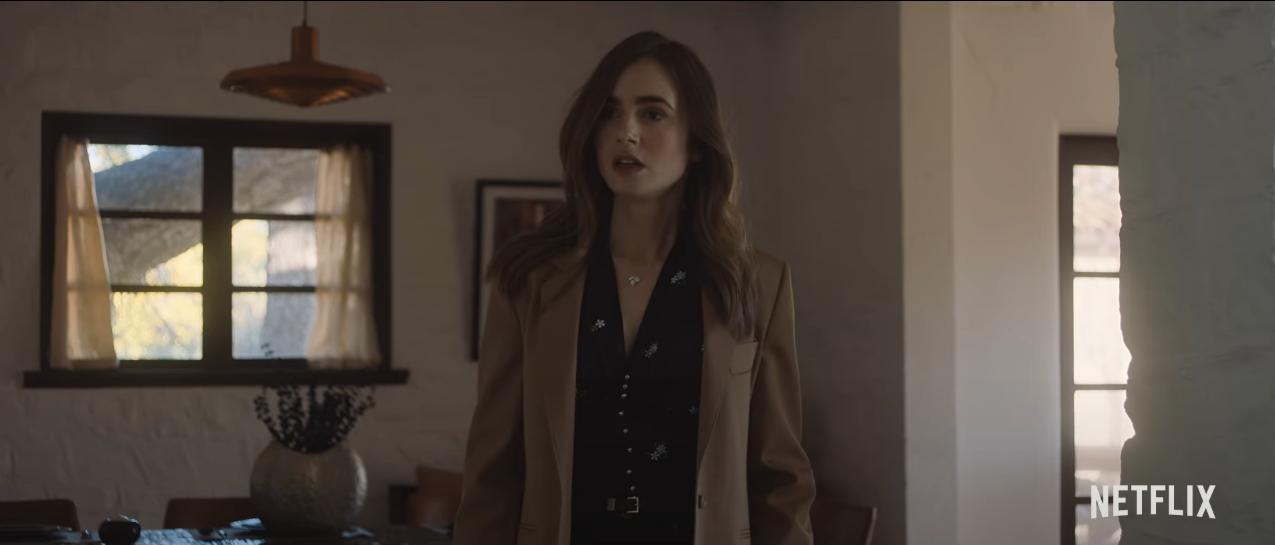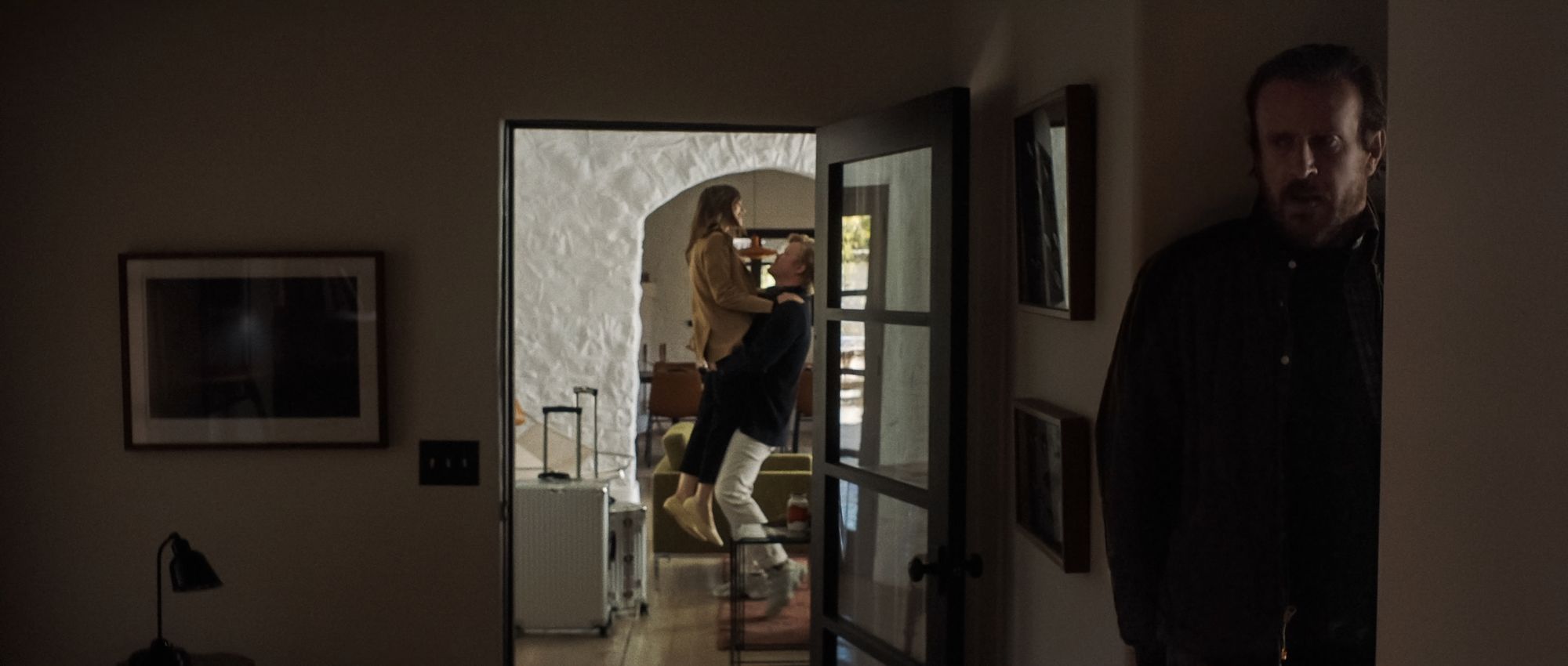By Milan Perera, Second Year, English Literature
Netflix’s latest crime thriller, Windfall, is a curious pastiche of Hitchcock, Tarantino and Fincher thrillers, without the thrill. Windfall’s premise is promising at first, further improved by the fine acting, well-thought-of dialogue and hauntingly atmospheric music that rings throughout. Charlie McDowell’s thriller picture ticks many boxes but fails to make the final killer punch for which viewers eagerly wait for a good 90 minutes.

The story set in a sprawling mansion on the backdrop of an arid landscape, adorned with stylish French windows, a beguilingly beautiful garden, crystal blue swimming pools and an orchard tree. The film begins with a man walking around said orchard tree, peeling oranges and eating them against the sweltering heat.
The man’s solitary presence, seemingly innocent at first, raises red flags when he throws and smashes the glasses he drinks from and urinates in the shower. By this point, it becomes abundantly clear that he does not live here but is an intruder.
As he attempts to make a stealth departure, clutching onto a bundle of dollar bills, the owners make an earlier than scheduled return. This moment becomes a catalyst for the film’s climax, propounding the action before leaving viewers on a cliff-hanger that, at times, is thwarted.

The characters remain nameless but identified with their social position and actions. The home belongs to a tech billionaire (played by Jesse Plemons) and his wife (Lily Collins), while Jason Segal plays the intruder. Now, held hostage, the tech billionaire is willing to offer more than the intruder demanded for his life to be spared. But, money can’t solve everything, with the agreed $500,000 having to be delivered the following day as the billionaire himself is bound to his company protocols.
The uneasy wait overnight involving these three individuals is one of the movie’s highlights. The wife realises that the backgrounds of the intruder and herself are, in fact, similar. She avoids any sexual activity with her husband if she can help it, and, it comes to light that her husband paid for her tuition fees. This transactional aspect of the marriage highlights what lies in the core of the film’s storyline and premise.
There is an underlying social commentary shedding light on the issues of social injustice and wealth disparity; prompting the questions throughout: What does it mean to be a tech billionaire for whom money is not an object? What does it mean to be in the shoes of one of these extremely powerful people? This is a refreshing departure from the usual run of the mill in movies.

Jesse Plemons seemed to have perfected the art of playing complex and morally ambivalent characters as ably demonstrated in the Academy Award winning movie Judas and the Black Messiah (2021). There is the unshakable self-belief, ruthlessness and occasional callousness but then he tries at times to empathise with those who are less fortunate.
Plemons captures this complex moral pastiche to a tee. Lily Collins (the real life wife of McDowell) paints the strain she is under with aplomb. Jason Segal whose forte lies in comedy did not disappoint, as he was able to capture the mindset of the intruder with nuance.

The last 10-minute section serves as the saving grace of the movie, which had the pathos of a Greek Tragedy: everybody is at a loss, everybody hurts- there are no winners.
On paper, Windfall seems like a superb film, with great acting, a haunting music score and a strong message that adds depth to the thriller film genre. So, it is disheartening that it was simply let down by poor execution. Despite its flaws, it remains an enthralling watch, with the last ten minutes redeeming the viewer’s perseverance.
Featured Image: IMDB
Will you be watching Netflix's latest thriller?









